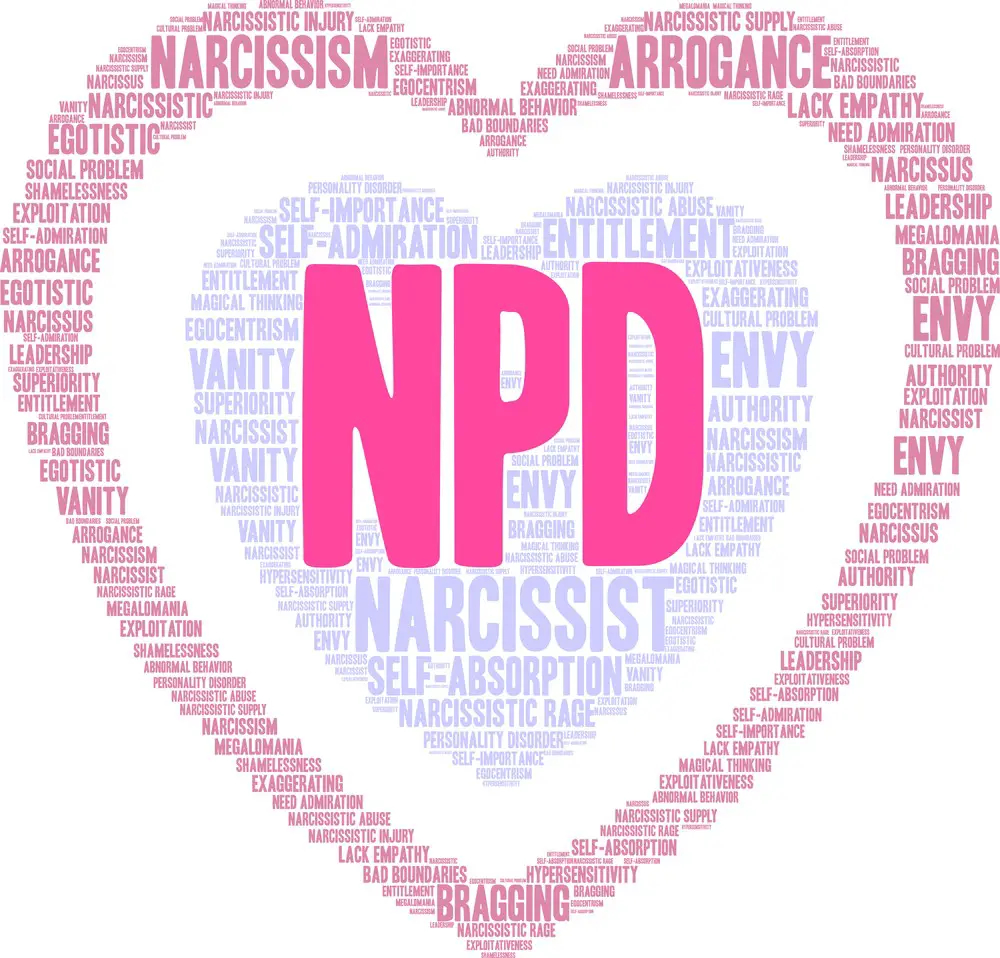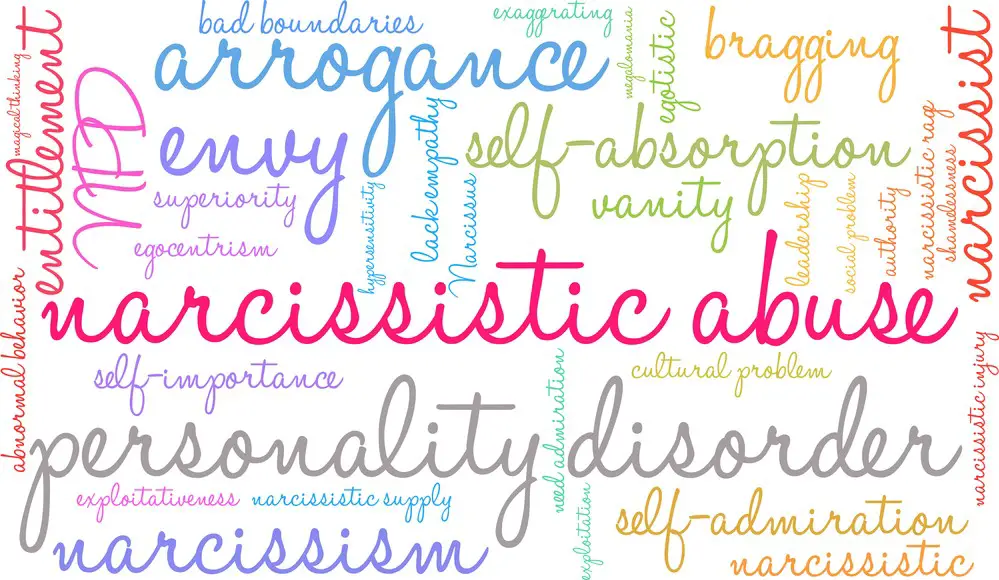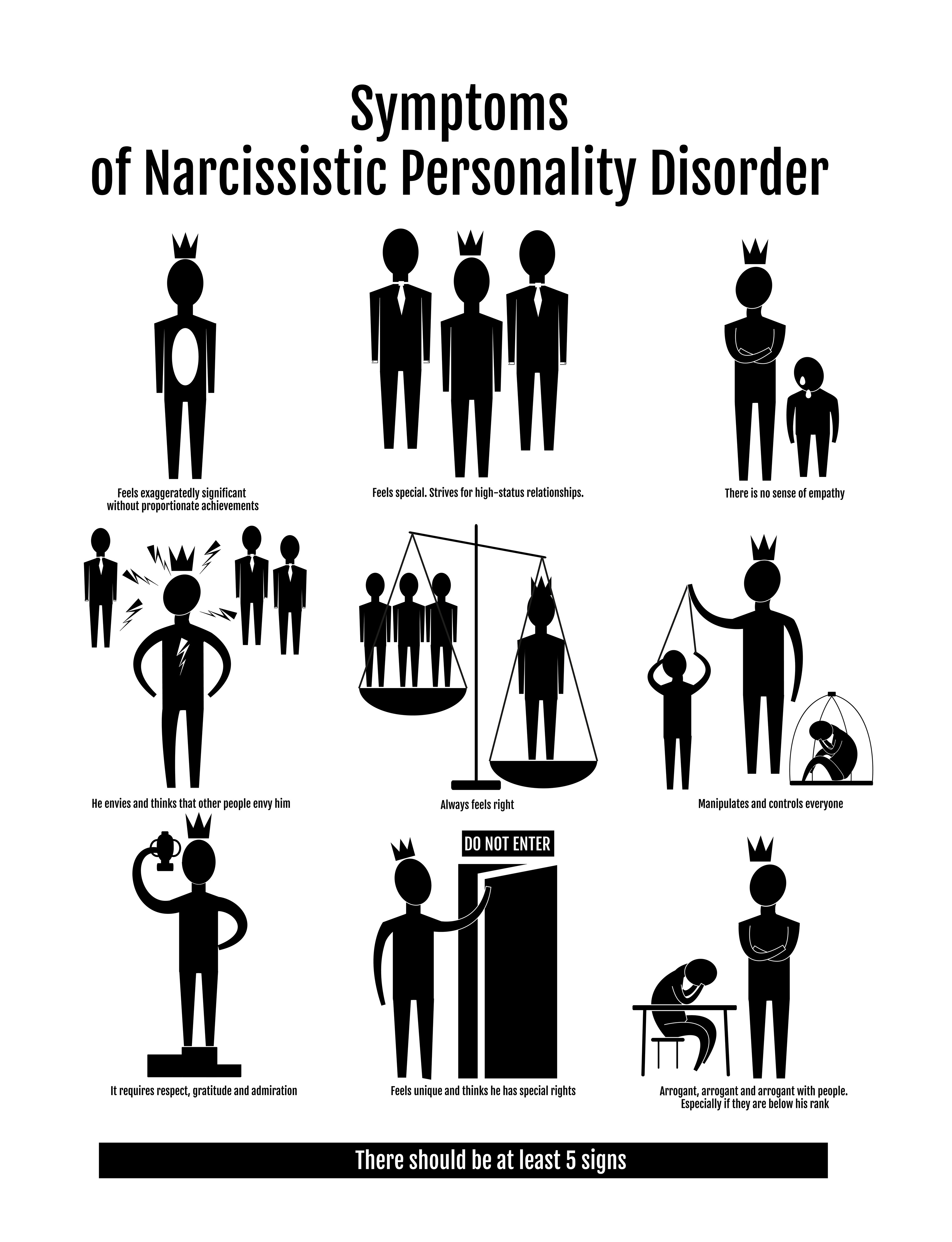As a BetterHelp affiliate, we receive compensation from BetterHelp if you purchase products or services through the links provided
When dealing with a narcissist, various situations can challenge our emotional well-being. One such scenario is when a person finds themselves vulnerable and shedding tears in front of a narcissist, which can provoke a range of reactions from the narcissist. To better understand the dynamics in these situations, it is important to examine narcissists’ behavioral traits and emotional responses.
Narcissistic individuals are characterized by a deep sense of self-importance, a desire for admiration, and a lack of empathy for others. Consequently, when confronted by the tears of a loved one or an acquaintance, their observational and emotional responses may significantly differ from those of a person who does not exhibit narcissistic tendencies. This article will explore the implications and consequences of crying before a narcissist and how their self-perception and behavioral traits can shape their response in these quiet moments of vulnerability.
Key Takeaways
- Narcissists exhibit behaviors and emotional responses driven by self-importance and lack of empathy.
- Their self-perception can influence their reaction to someone’s tears and need for admiration.
- Understanding these behaviors can help when interacting or dealing with narcissistic individuals in emotional situations.
Understanding Narcissists
 Defining Narcissistic Personality Disorder
Defining Narcissistic Personality Disorder
Narcissistic Personality Disorder (NPD) is a mental health condition characterized by an inflated sense of self-importance, a deep need for admiration, and a lack of empathy for others. Individuals with NPD often have a grandiose sense of self and feel superior to others. This disorder can cause significant issues in personal relationships and daily functioning.
Types of Narcissists
1. Grandiose Narcissist: These individuals are the most well-known narcissist, often displaying an exaggerated sense of self-importance, arrogance, and entitlement. They seek admiration and attention from others and may behave boastfully or pretentiously.
2. Covert Narcissist: Covert narcissists are more subtle in their behaviors, often presenting as victims or martyrs. They still crave admiration and attention but are more likely to manipulate others to achieve their goals. They may engage in passive-aggressive behaviors and use guilt or self-pity to gain sympathy.
3. Malignant Narcissist: Malignant narcissists are characterized by their severely antagonistic behavior and lack of empathy. They are often aggressive, hostile, and vindictive, wanting to control and dominate others. These individuals may engage in destructive behaviors and have little to no regard for the consequences of their actions.
4. Vulnerable Narcissists: Vulnerable narcissists tend to have low self-esteem and present a fragile sense of self. They often seek validation and reassurance from others to maintain their self-image. They may be oversensitive to criticism and become defensive or resentful when slighted.
5. Antagonistic Narcissists: Antagonistic narcissists exhibit traits of both grandiose and vulnerable narcissists but are primarily defined by their combative and confrontational nature. They may resort to manipulation, deceit, and provocation to assert dominance and protect their fragile self-image.
Individuals with narcissistic traits may present differently, but they all share similar underlying characteristics, including manipulation tactics, craving for admiration, and lack of empathy. When faced with the emotions of others, such as witnessing someone cry, it is essential to understand that these traits may influence their response and behavior.
Behavioral Traits Of Narcissists
 Narcissists possess various behavioral traits that can be detrimental to those around them. These traits involve exhibiting false empathy and apologies, seeking control and power, and employing manipulation tactics.
Narcissists possess various behavioral traits that can be detrimental to those around them. These traits involve exhibiting false empathy and apologies, seeking control and power, and employing manipulation tactics.
False Empathy and Apologies
A common characteristic of narcissists is their ability to display false empathy. They may pretend to be concerned or understanding when someone is hurt or in pain, but their intentions are often self-serving. They may use this false empathy to manipulate a situation and maintain control over the other person. Similarly, their apologies can be insincere, as they are more likely to be driven by a desire to appease others or maintain their image rather than taking genuine responsibility for their actions.
Control and Power
Narcissists often seek to dominate their interpersonal relationships, driven by a need for control and power. This behavior can manifest in various ways – from micromanaging others to imposing their opinions and decisions on those around them. Narcissists may also use emotional or psychological tactics to maintain control, such as gaslighting or belittling others to maintain their superiority.
Manipulation Tactics
To maintain their desired power dynamics, narcissists employ various manipulation tactics. These include, but are not limited to:
- Love-bombing: Showering a target with excessive affection and attention, rapidly escalating the relationship to ensure the target becomes emotionally invested.
- Gaslighting: Systematically making the target doubt their perceptions, memories, and experiences by denying or altering reality.
- Triangulation: Creating jealousy or rivalry among others to maintain control and ensure loyalty.
- Devaluation: Criticizing and belittling the target to erode their self-esteem and make them more reliant on the narcissist for validation.
These tactics and their other behaviors can cause significant emotional harm to those affected by the narcissist’s actions. Individuals must recognize these patterns to protect themselves from the negative impact of being involved with a narcissist.
Narcissists And Emotion
 Emotional Invalidation
Emotional Invalidation
Narcissists often struggle to understand or recognize emotions in others, as they tend to prioritize their feelings and needs. When someone is in pain or crying, a narcissist might dismiss or invalidate their emotions. This occurs because narcissists view vulnerability as a weakness and aim to maintain a sense of superiority. Consequently, they may use tactics like blaming, shaming, or expressing frustration to undermine the other person’s emotions.
Reaction to Crying
When a narcissist sees someone cry, their reaction can range from annoyance to satisfaction. In some cases, they might feel discomfort or even anger, especially if they perceive the tears as a sign of manipulation or a threat to their entitlement. Rather than showing compassion or remorse, they might respond with rage or contempt, further escalating the situation. Sometimes, a narcissist might laugh or express satisfaction when someone cries, reinforcing their belief that they hold power and control over their emotions.
Lack of Genuine Concern
Narcissists often lack a genuine concern for others, as they are focused on their well-being and importance. Consequently, when someone cries in their presence, they may struggle to display sympathy or offer comfort. Instead, they might become preoccupied with their discomfort, ego, or reputation. This lack of empathy can make it difficult for them to build trust with others, as their reactions to emotions like pain or regret are often seen as cold or unfeeling. Despite their outward confidence, narcissists tend to have a fragile sense of self, which can hinder their ability to connect with and understand the emotions of others genuinely.
Narcissism And Relationships
 Love Bombing and Devaluation
Love Bombing and Devaluation
Narcissists often engage in love bombing, showing their partner excessive affection and attention early in the relationship. This creates an intense emotional bond, causing the partner to feel dependent on them. However, at the first sign of vulnerability, like witnessing their partner cry, the narcissist will quickly devalue their partner. They may use belittling and criticizing tactics, reminding their partner of their perceived inferiority and amplifying their superiority.
Maintaining Control in Relationships
Narcissists thrive on maintaining control in their relationships. Setting unclear or constantly changing boundaries keeps their partners uncertain and off-balance. They feed off the emotional reactions of their victims, often referred to as narcissistic supply. This can take many forms, such as their partner’s fear, guilt, or sadness. When a partner displays these emotions, such as crying, the narcissist gains power and superiority.
The Trauma Bond
The combination of intense love bombing and devaluing behaviors creates the trauma bond, an unhealthy attachment to the narcissist despite the emotional pain they inflict. Confusion and dependency stem from this bond, making it difficult for the partner to maintain healthy boundaries and protect themselves from emotional manipulation. When a narcissist witnesses their partner cry, the trauma bond deepens as they continue manipulating, playing both the rescuer and oppressor.
Narcissists’ Self-Perception
 The False Self
The False Self
Narcissists are characterized by a highly inflated self-image, often rooted in developing a false self. This false self is a self-serving façade, meticulously crafted to hide their true feelings of unworthiness, vulnerability, and often evil. Research has shown that narcissists’ self-perception is distorted and greatly diverges from reality.
For instance, they may see themselves as:
- Exceptional and superior to others
- Entitled to special treatment
- In need of constant admiration and attention
Childhood Trauma and Narcissism
The development of narcissistic traits is often linked to childhood trauma. Such experiences, including abuse, neglect, or excessive praise, can create the conditions under which narcissism forms. It is crucial to point out that not everyone who experiences childhood trauma will develop narcissistic tendencies.
Childhood trauma can contribute to the formation of the false self by:
- Pushing the individual to create a more favorable self-image to cope with their negative emotions
- Teaching them that self-serving behavior carries rewards, as it may have been their only means of survival
- Instilling a deep sense of inadequacy and an overcompensatory need for validation
Understanding the complex interplay between the false self, true self, and childhood trauma makes it clearer how and why narcissists perceive themselves in the way they do. Importantly, this knowledge can also guide effective treatment strategies and help narcissists and those close to them navigate this challenging personality disorder.
Dealing With Narcissists
 Setting Boundaries
Setting Boundaries
Dealing with narcissists can be challenging, but it is possible to handle them effectively by setting firm boundaries. Be clear about what you are and are not willing to tolerate. Do not allow self-serving behavior to go unchecked. Stand up for yourself when a narcissist tries to manipulate or exploit your emotions. They may act childish or throw tantrums when they do not get their way; do not be intimidated by this.
Maintaining distance when setting boundaries is essential, as this can help prevent falling into their manipulations. Remember that your emotional well-being should always be a priority; protecting it is crucial.
Protecting Self-Worth
Narcissists can sometimes make you feel vulnerable and unworthy, negatively impacting your self-worth. Recognize their tactics and remind yourself that their words and actions do not reflect who you are. Instead, they are using these tactics to feed their ego.
To protect your self-worth, focus on maintaining a strong support system. Surround yourself with people who encourage and uplift you. Practice self-care and make time for activities and hobbies that bring you happiness.
By setting boundaries and protecting your self-worth, dealing with narcissists can become a more manageable experience. Maintain confidence in yourself and be aware of narcissists’ tactics, remaining clear and knowledgeable in your interactions.
Frequently Asked Questions
 How does a narcissist behave when someone cries?
How does a narcissist behave when someone cries?
A narcissist may react with shock, anger, or annoyance when someone cries. They often lack empathy and struggle to relate to others’ emotions. Instead of offering support, they may focus on maintaining their image or take advantage of the situation for personal gain.
What happens when a narcissist sees you cry after a breakup?
When narcissists see you cry after a breakup, they may feel victorious, assuming it proves they are more important or superior. They often lack empathy and might mock your pain or minimize your feelings. Sometimes, they might use this situation to manipulate or control the relationship.
Are there signs that a narcissist is exploiting your emotions?
Yes, there are signs that a narcissist is exploiting your emotions. They may use your emotional vulnerability to guilt-trip or manipulate you into doing what they want. Other signs include constant criticism, gaslighting, or invalidating your emotions. Over time, this can lead to emotional exhaustion and damaged self-esteem.
How do narcissists react when they see you’ve moved on?
When narcissists see that you’ve moved on, they may become envious, angry, or manipulative to regain control or maintain their self-image. They might engage in hoovering – trying to suck you back into their lives by making false promises or using guilt to pull you back.
Is it bad if a narcissist sees you cry?
It depends on your relationship with the narcissist. If you are okay with them potentially using your emotions against you, then crying in their presence might not be harmful. However, if their reaction to your feelings is consistently harmful, it is best to avoid showing vulnerability in front of them.
Do narcissists care if they upset you?
Narcissists often care more about their feelings and image rather than others. Your emotions may threaten or inconvenience them, especially if it challenges their self-worth. So, while they might not intentionally aim to upset you, they often lack the empathy to care about your feelings genuinely.
Jacob Maslow: Navigating Emotional Tides and Empowering the Brokenhearted
Jacob Maslow, the author of “When a Narcissist Sees You Cry,” is more than just a writer; he’s a resilient soul on a personal journey to rise above life’s toughest battles. Relying on Lexapro for mental balance and equipped with valuable insights from extensive therapy sessions, Jacob intimately understands the whirlwind of emotions when faced with a narcissistic partner. Drawing from the heart-wrenching experience of an ex-partner’s refusal to honor court-ordered shared custody, leading to an agonizing estrangement from his children, Jacob’s writings resonate deeply with those in similar situations.
Finding solace and clarity during his long daily walks, he channels these introspective moments into insightful articles about mental health and narcissism. His words reflect his journey and are a beacon of hope for others, echoing the belief that triumph over mental health challenges is achievable for everyone.
In addition to his impactful writings, Jacob also pioneers a dedicated legal platform, providing resources and support for individuals entangled with defiant spouses, further exemplifying his commitment to championing the cause of shared parenting and mental well-being.
- 7 Ideas to Help You Relax and Unwind on a Family Vacation - April 27, 2025
- How Having Cybersecurity Protection Helps You Relax - April 25, 2025
- 8 Reasons Why Spending Time Outside Calms You Down - April 25, 2025
This site contains affiliate links to products. We will receive a commission for purchases made through these links.


 Defining Narcissistic Personality Disorder
Defining Narcissistic Personality Disorder Emotional Invalidation
Emotional Invalidation Love Bombing and Devaluation
Love Bombing and Devaluation The False Self
The False Self Setting Boundaries
Setting Boundaries How does a narcissist behave when someone cries?
How does a narcissist behave when someone cries?
